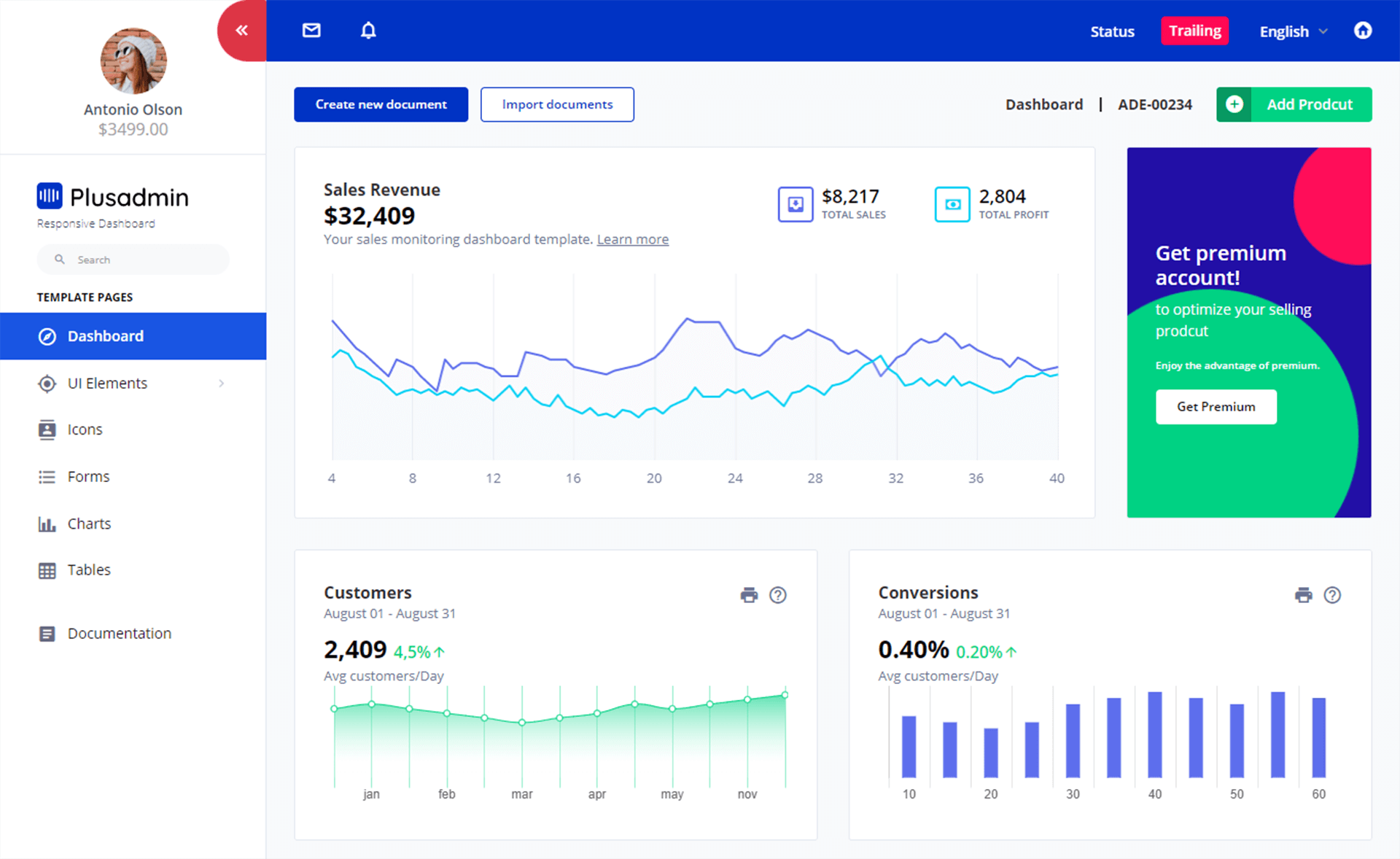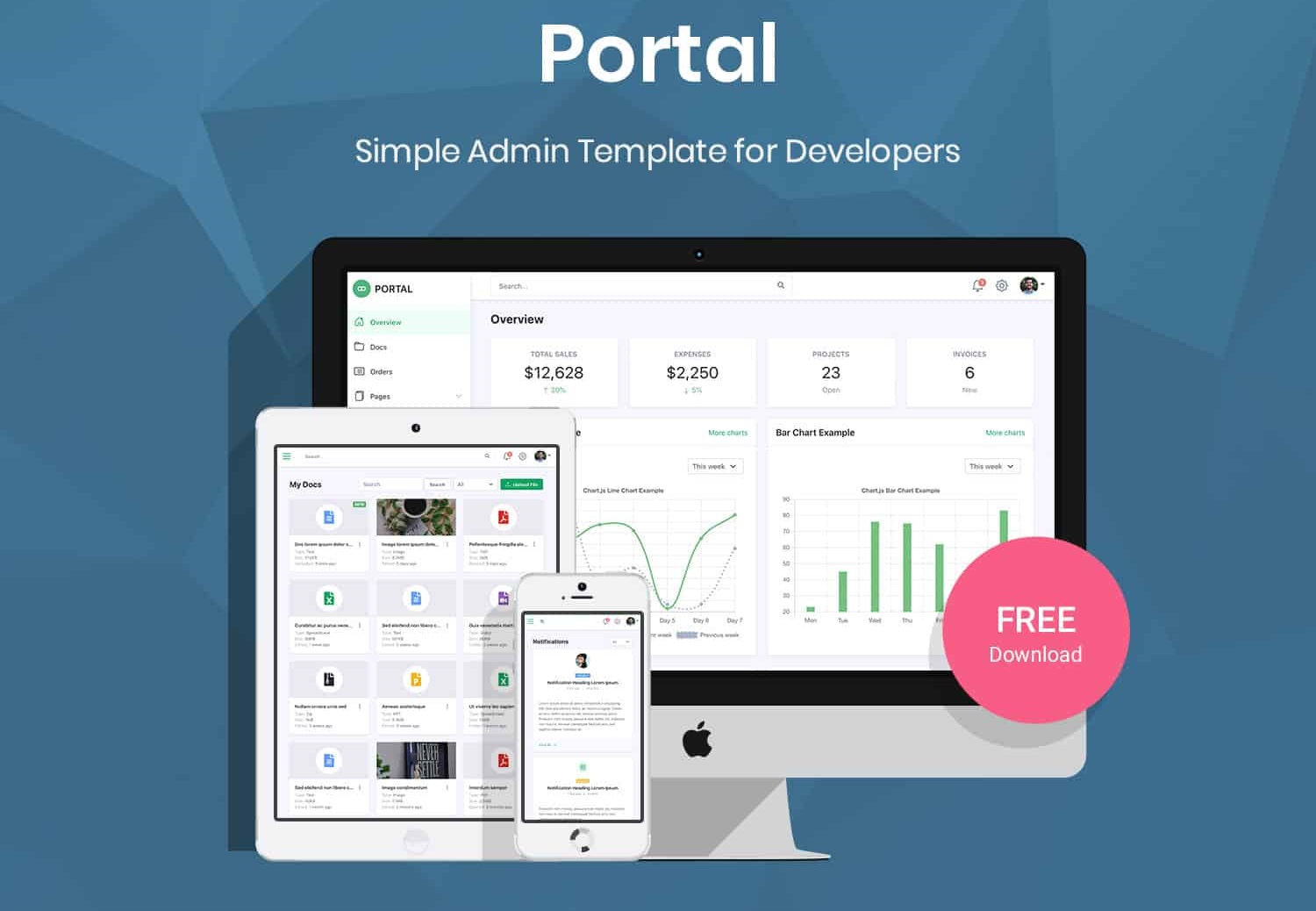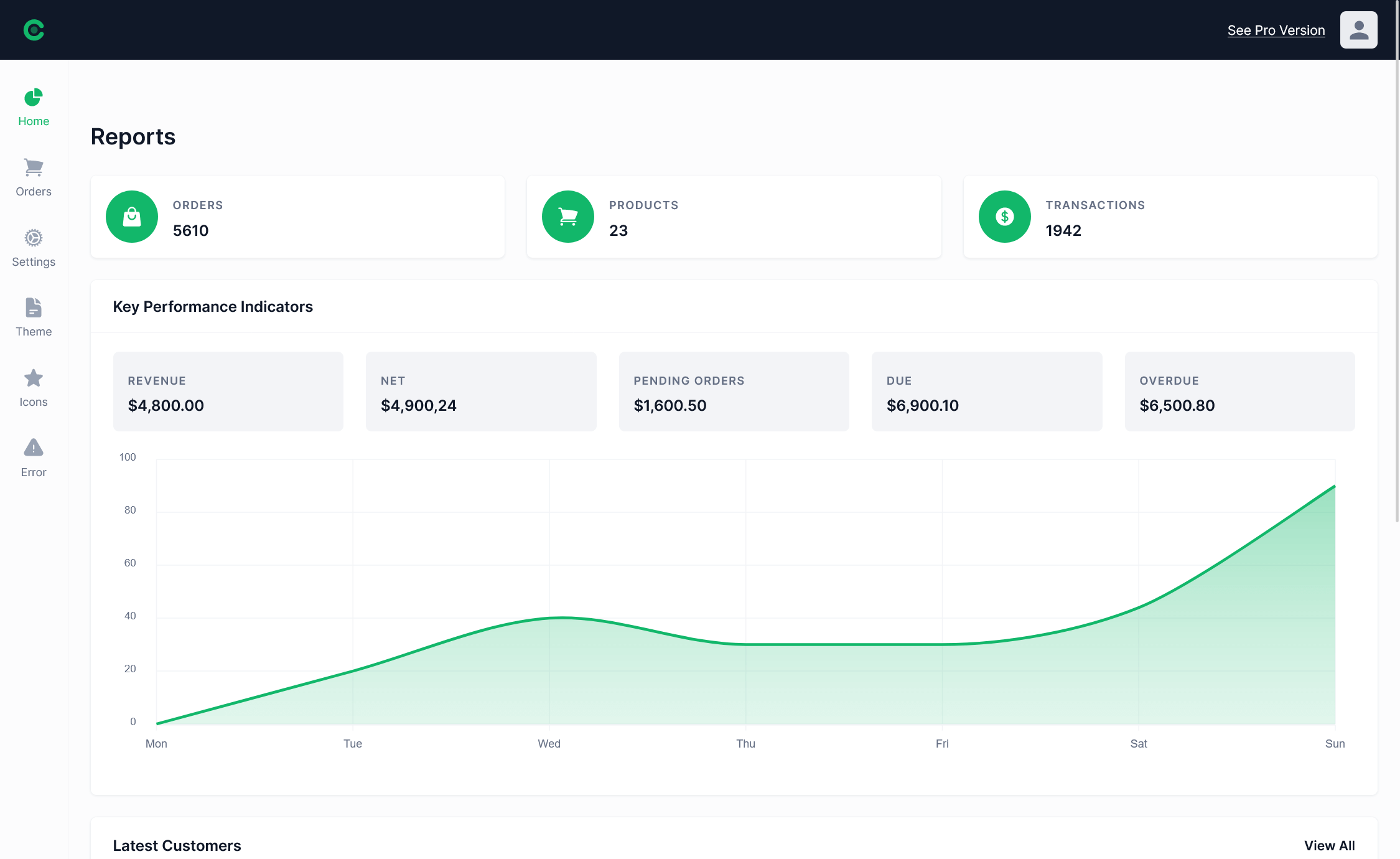How to Query JSON in SQL Server
By Tan Lee Published on Mar 20, 2025 343
In this article, we will walk through querying JSON data stored in SQL Server, simplifying queries using computed columns, and improving performance through indexing.
Key Capabilities of SQL Server JSON API
SQL Server’s JSON capabilities are designed for basic use cases, such as:
- Inserting JSON into a table
- Querying JSON data from a table
- Modifying JSON content in a table
However, for more complex or advanced querying needs, the built-in JSON API can become cumbersome, and in such cases, exploring other alternatives, like NoSQL databases, may be preferable.
Let's look at a practical example, where we serialize and save a JSON object to a table, perform simple queries on it, and finally deserialize it back into an object.
1. Add JSON Data to a Table
The JSON data is stored as a string in an nvarchar column, which can be created as follows:
CREATE TABLE dbo.[Teams]( NOT NULL, [Details] [nvarchar](max) NOT NULL )
Here’s a sample JSON object representing a football team’s roster:
{
"Players": {
"QB1": {
"Name": "Aaron Rodgers",
"YearsOfExperience": 17,
"College": "California"
},
"RB1": {
"Name": "Aaron Jones",
"YearsOfExperience": 5,
"College": "UTEP"
}
},
"GeneralManager": "Brian Gutekunst",
"Owner": {
"Name": "Mark Murphy"
}
}Inserting this JSON into the table:
INSERT INTO [Teams] ([TeamName], [Details])
VALUES ('Green Bay Packers', @teamJson)2. Extracting Single Values with JSON_VALUE()
To query a specific value from the JSON, use the JSON_VALUE() function. For example, to find out the owner of the "Green Bay Packers":
SELECT JSON_VALUE(Details, '$.Owner.Name') FROM Teams WHERE TeamName = 'Green Bay Packers'
This returns:
Mark Murphy
3. Extracting JSON Objects with JSON_QUERY()
To extract an entire JSON object, use the JSON_QUERY() function.
For example, let’s get the list of players:
SELECT JSON_QUERY(Details, '$.Players') FROM Teams WHERE TeamName = 'Green Bay Packers'
This returns the "Players" object:
{
"QB1": {
"Name": "Aaron Rodgers",
"YearsOfExperience": 17,
"College": "California"
},
"RB1": {
"Name": "Aaron Jones",
"YearsOfExperience": 5,
"College": "UTEP"
}
}4. Filtering Rows Using JSON Values
You can filter rows based on the values inside the JSON.
For example, to find out which team has Aaron Rodgers as the starting quarterback:
SELECT TeamName FROM Teams WHERE JSON_VALUE(Details, '$.Players.QB1.Name') = 'Aaron Rodgers'
This returns:
Green Bay Packers
5. Using Computed Columns to Simplify Queries
To simplify querying JSON values, you can create a computed column that extracts a specific value from the JSON.
For instance, to directly retrieve the quarterback’s name:
ALTER TABLE [Teams] ADD QB1 AS JSON_VALUE(Details, '$.Players.QB1.Name') PERSISTED
Now, querying for the team with Aaron Rodgers as QB is simpler:
SELECT TeamName FROM Teams WHERE QB1 = 'Aaron Rodgers'
This returns:
Green Bay Packers
6. Indexing Computed Columns
You can also index computed columns to improve query performance. Adding an index on the QB1 column:
CREATE UNIQUE NONCLUSTERED INDEX [QB1Index] ON [dbo].[Teams]([QB1] ASC)
By doing this, queries like the one above will now benefit from faster index lookups rather than a full table scan.
SQL Server’s JSON support enables users to store, query, and manipulate JSON data efficiently. While it is perfect for straightforward scenarios, more complex or document-centric data might require a NoSQL database. By following the steps outlined above, you can optimize your SQL Server setup for JSON-based data, enhancing both performance and query simplicity.
- How to Download ODBC Driver for SQL Server
- How to Download SQL Server Management Studio (SSMS) Versions
- How to modify JSON in SQL Server
- How to set time to 00:00:00 with GETDATE() in SQL
- How to find all the dependencies of a table in SQL Server
- How to Find Objects Referencing a Table in SQL Server
- Case sensitivity in SQL Server
- How to Convert varchar to uniqueidentifier in SQL Server





